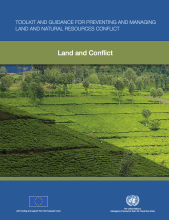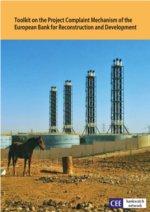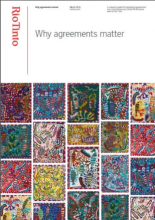Resources for Grievances & redress
Toolkit and Guidance for Preventing and managing Land and Natural Resources Conflict - Land and Conflcit
This guidance note provides a framework for understanding and addressing land and natural resource-related grievances and conflicts through a holistic, systematic approach. While the main emphasis is on violent conflict, it may also be useful in a variety of other situations characterized by significant land-related grievances, but which are not currently or openly violent. It is intended for staff of multilateral organisations, national and local governments, and civil society organisations.
Toolkit on the Inter-American human rights system for indigenous women
This toolkit contains a series of information notes explaining different aspects of the Inter-American human rights system. It is designed to help indigenous women and their advocates to use the system effectively.
Toolkit on the Inter-American human rights system for indigenous women
This toolkit contains a series of information notes explaining different aspects of the Inter-American human rights system. It is designed to help indigenous women and their advocates to use the system effectively.
Toolkit on the Project Complaint Mechanism of the European Bank for Reconstruction and Development
The Project Compliance Mechanism (PCM) is the EBRD's accountability mechanism for the assessment and follow-up of complaints about project financed by the bank. The PCM is a grievance mechanism for civil society, local groups and individuals that may be directly and adversely affected by a bank project. It's purpose is to help identify when the EBRD or its client has not fulfilled the obligations defined in the bank's policies and to facilitate a problem-solving process with the EBRD's client. This guide is written from the perspective of a complainant and contains useful tips for NGOs, local communities and affected individuals.
Why agreements matter
The guide has been produced to help practitioners, project and operational managers understand the drivers, implications and capabilities needed to make and implement agreements.




